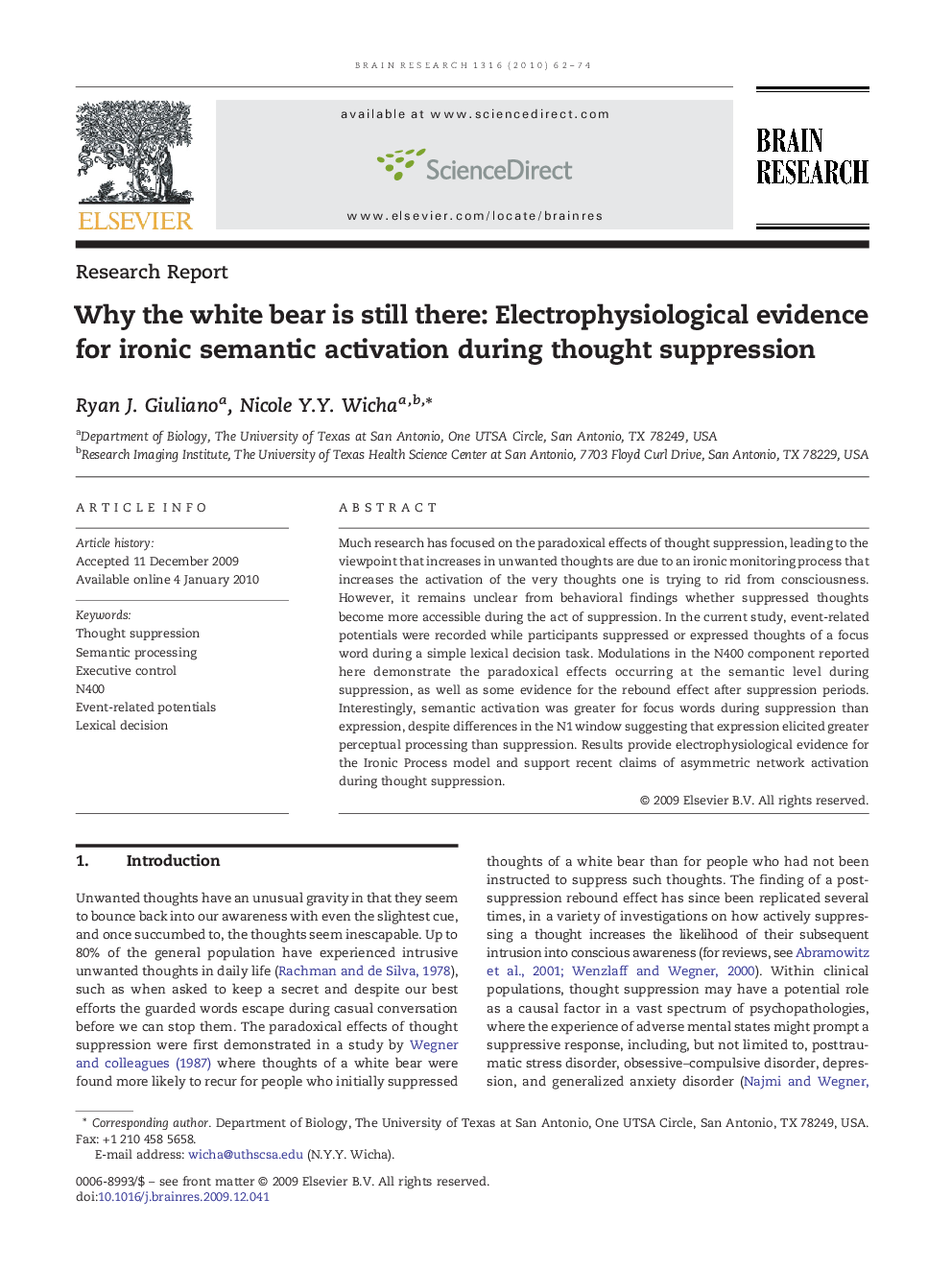| Article ID | Journal | Published Year | Pages | File Type |
|---|---|---|---|---|
| 4327329 | Brain Research | 2010 | 13 Pages |
Much research has focused on the paradoxical effects of thought suppression, leading to the viewpoint that increases in unwanted thoughts are due to an ironic monitoring process that increases the activation of the very thoughts one is trying to rid from consciousness. However, it remains unclear from behavioral findings whether suppressed thoughts become more accessible during the act of suppression. In the current study, event-related potentials were recorded while participants suppressed or expressed thoughts of a focus word during a simple lexical decision task. Modulations in the N400 component reported here demonstrate the paradoxical effects occurring at the semantic level during suppression, as well as some evidence for the rebound effect after suppression periods. Interestingly, semantic activation was greater for focus words during suppression than expression, despite differences in the N1 window suggesting that expression elicited greater perceptual processing than suppression. Results provide electrophysiological evidence for the Ironic Process model and support recent claims of asymmetric network activation during thought suppression.
